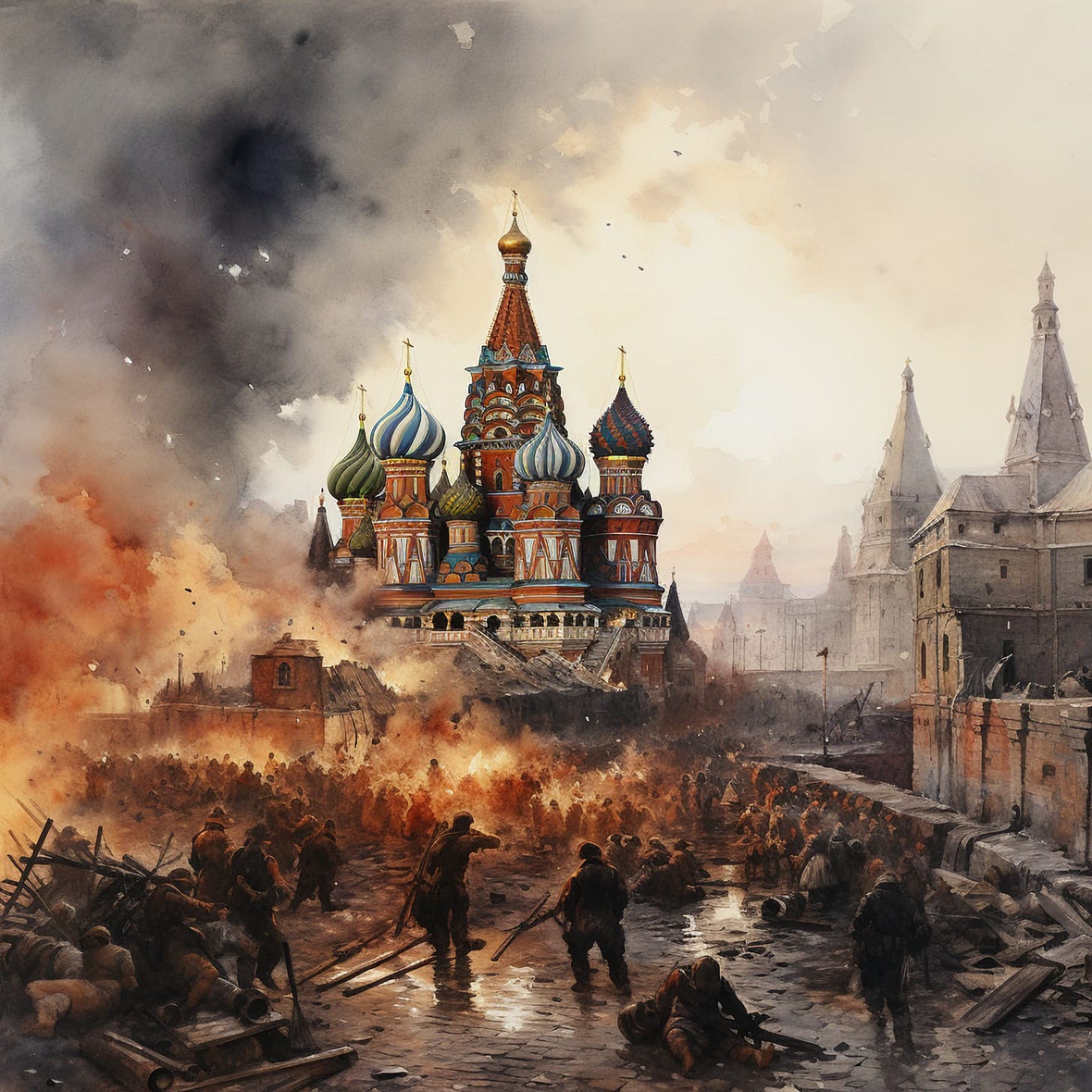“Imagine a watercolor painting of Moscow besieged by an army,” I typed into a Midjourney prompt. The bot coughed up the above art.
Imagine, indeed. Who would have thought that the events of this past weekend would unfold as they did! It’s long been speculated that a strongman would succeed Vladimir Putin at some point. But most of us Russia-watchers susp…




